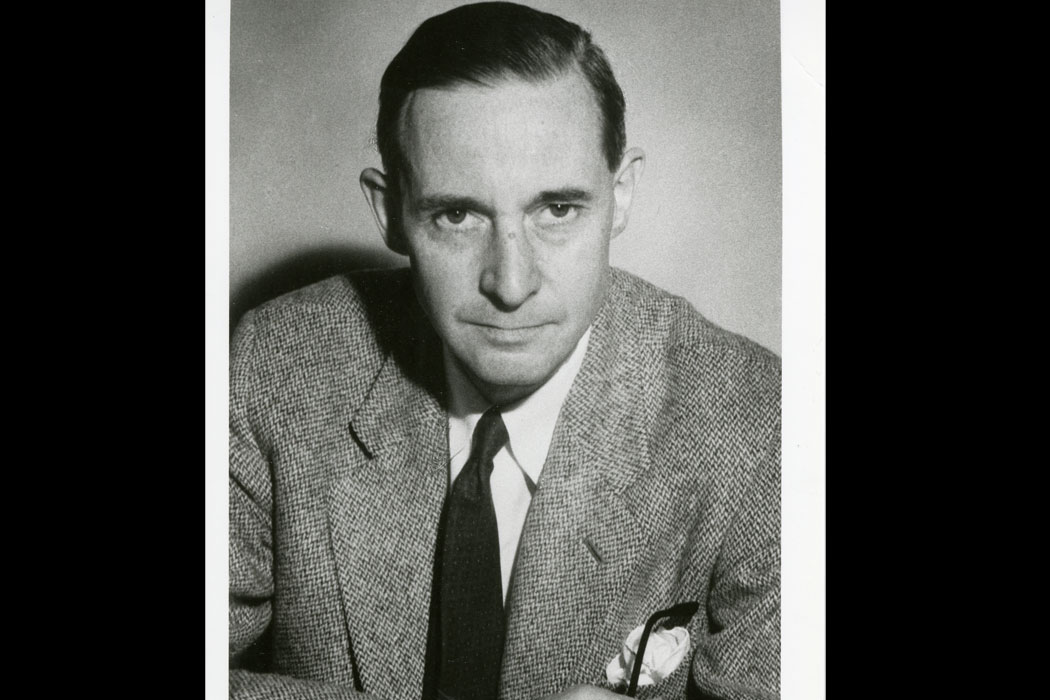
Joe Doupe / Source: Faculty of Medicine Archives
Lecture honours Joe Doupe, the man who revived U of M’s medical school
In 1946, scientist and army doctor Joe Doupe (pronounced dope) returned from the war to his hometown of Winnipeg and began teaching at the University of Manitoba. By 1949, the now-head of the physiology department had introduced a new way of learning medicine.
Doupe believed that research and knowledge were meant to go together and that students should question everything. His tendency to question the status quo gained him a reputation; he constantly challenged those around him to rethink the things they took for granted.
Pushing for innovation and change, he believed in relinquishing the comfortable and familiar in order to blaze new trails and in finding new and improved ways to practice medicine through research. He encouraged his students to draw their own conclusions rather than blindly accepting what they were told.
Along with a group of other researchers he brought together, Doupe transformed U of M’s medical school in a few short years, putting it on track with medical innovation happening in England and the United States.
It’s well-known that the U of M has commemorated his excellence through the Joe Doupe Centre, a recreation facility at Bannatyne campus, the Joe Doupe Concourse (also at Bannatyne campus) and an annual lecture, the Joe Doupe Memorial Lecture, which happens this year on September 4.
Perhaps less known is that in addition to excelling in research and diagnosis, he enjoyed pranking fellow interns in their residence hall, once lighting the Christmas tree on fire.
Upon graduation, Doupe pursued an elite Membership of the Royal College of Physicians diploma in England. It required writing a difficult examination with just a 20 percent pass rate in 1930 (Doupe wrote the exam in 1936); he passed, but joked with his friends that it had been a mistake.
Seeing a need for doctors in the army as the war began, Doupe joined the Royal Army Medical Corps for a year. Afterward, he researched nerve injury in England — making just £600 per year — before rejoining the army in 1943 to work in a military hospital at Edinburgh Castle and then in Egypt and Burma.
Following the war, a more mature Doupe returned with his wife and young children to Winnipeg, where the position of medical research director was created for him. He was later made head of the physiology department, where he ensured that both practical and research training were provided to all medical students.
He introduced research projects and abolished lab exercises. He established the practice of one-on-one time for students with their professors and even attended his colleagues’ lectures, inciting students to initiate discussion by whispering questions for them to ask.
Dividing his time between the medical school and the Winnipeg General Hospital across the street, he ensured that his physiologists could devote time to teaching, research and hospital practice. In doing this, he improved medical research, training and care in Winnipeg.
Doupe remained with the University as department head until his death in 1966.
This year’s lecture, entitled “Neural Control of Walking: The B.Sc. (Med.) Project That Wouldn’t Go Away,” takes place on September 4 at the Frederic Gaspard Theatre from noon until 1:00 p.m. and is by Brian Schmidt, professor of neurology, department of internal medicine, and research director of the neurology training program, College of Medicine, Faculty of Health Sciences. The annual lecture honours Joseph Doupe’s legacy and leadership at the University of Manitoba College of Medicine, and the spirit of inquiry he instilled in his students.






